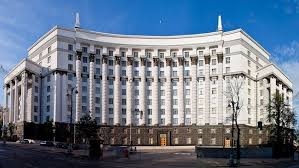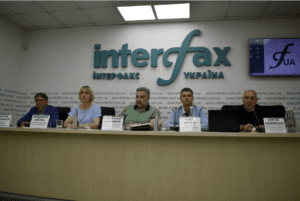
U.S. President Donald Trump said he may allow individual exceptions to the 10% tariff for most trading partners, although he considers the rate the minimum for countries seeking to negotiate with Washington, Bloomberg reported Saturday.
“There may be some exceptions for obvious reasons, but I would say 10% is the minimum,” Trump told reporters Friday aboard Air Force One en route to Florida. He did not specify what the reasons were, nor did he announce any new fare changes.
The announcement came after fare increases for dozens of countries announced in the week. Some were later postponed due to negative market reactions. China was hit with duties of 145%, while a prime rate of 10% has so far been applied to most nations.
“Despite this, the average duty rate in the U.S. could reach historic highs. Beijing, in response to Washington’s actions, raised tariffs on US goods to 125%. China said it will not respond to further steps, but is preparing other measures,” the report said.
Trump said at the same time that “the market is stable” and the dollar will remain “the currency of choice”. He also expressed confidence that the trade standoff with China could end positively.

The Cabinet of Ministers of Ukraine has set from June 1, 2024 the electricity tariff for the population at the rate of 4.32 UAH/kWh with VAT, which is 64% higher than the current tariff of 2.64 UAH/kWh with VAT.
This was announced by the first deputy head of the energy Committee of the Verkhovna Rada Oleksiy Kucherenko.
“4.32 is a single price. For electric heating – up to 2000 kWh at the old price in the heating period, in the summer as for everyone,” he wrote in his Facebook on Friday.

The tariff on the transit of oil through the territory of Ukraine to Hungary and Slovakia will increase by 18.3% from 1 January 2023 – from EUR11.5 to EUR13.6 per ton, a source in the government told the news agency Interfax-Ukraine.
The information is also confirmed by the Russian media with reference to the data on the website of the Russian Transneft.
In November, Bloomberg reported citing a letter from Ukrtransnafta to Transneft that the Ukrainian side notified the Russian side of the need to increase the tariff by 18% due to the ongoing destruction of the Ukrainian energy infrastructure, which led to a significant shortage of electricity, increasing its cost, a shortage of fuel and spare parts.
In addition, the costs of organizing safe working conditions for personnel and security of the Ukrainian oil transport operator’s facilities have increased.
As earlier reported, the tariff for transit of oil through the Ukraine for Transneft was increased from January 1, 2022 from EUR8.6/ton to EUR9/ton, from April 1, 2022 to EUR11.5/ton.
“Ukrtransnafta in 2021 reduced the transit of oil through the territory of Ukraine by pipeline transport to European countries and Belarus by 3.2% (427.2 thousand tons) compared with 2020 – to 12 million 724.8 thousand tons. In particular, the transit towards Budkovce (Slovakia) amounted to 8 million 594.3 thousand tons (+1.6% compared to 2020), 3 million 411.5 thousand tons (-10.6%) – Feneshlitke (Hungary), 719 thousand tons (-18.2%) – Mozyr (Belarus).
December 5, 2022 the EU and Great Britain imposed an embargo on the purchase of Russian oil, as well as participation of their companies in the transportation of Russian oil by sea and the provision of relevant services. Hungary, the Czech Republic and Slovakia managed to obtain an exception to the embargo on Russian oil from the EU.

Associations of Ukrainian manufacturers call on the Ministry of Infrastructure of Ukraine to impose a moratorium on raising tariffs for rail freight traffic for the period of martial law and six months after its termination.
“There was no real discussion between shippers and the carrier about a compromise solution to increase tariffs – we were simply presented with a fact. When Ukrzaliznytsia announced the discussion of raising tariffs by 70%, the order to increase tariffs had already been signed. We had specific proposals: to introduce a moratorium for the period of martial law and six months after it on the increase in tariffs within the borders of Ukraine, and all related services,” Liudmyla Kripka, the Executive Director of the Ukrcement Association, said at a press conference at the Interfax-Ukraine agency on Thursday.
According to her, Ukrzaliznytsia did not take into account the transportation of raw materials, coal, fillers in the infrastructure component of transportation, and did not include the tariff distance, which is why the cost of the final product will increase more significantly than in the carrier’s forecast.
“The impact on the cost of the final product will be much higher than presented by Ukrzaliznytsia. On the example of cement: for us, the main raw material is limestone, and there the highest figure is 55%. Other industries fell into the values of 0-13%,” she said.
In addition, from August 1, the calculation for the use of wagons will be changed to the actual one instead of the planned one, which will also increase the costs of shippers due to delays in border crossings, the expert noted.
Oleh Misiuk, a representative of the Ukrainian Lime Industry Association, pointed out that the decision to raise tariffs would have a significant impact on the lime market, which is already undergoing a significant decline in production volumes.
“Before the war, the cost of delivery from the west of Ukraine to Dnipro was UAH 400 per tonne, now it is UAH 650. With a producer price of up to UAH 300/tonne, the consumer overpays another UAH 200-250 from July 1. In general, lime production has fallen from the pre-war 1.2 million tonnes per month to 350,000 tonnes in May-June. The decision of Ukrzaliznytsia to increase tariffs will hit the market even harder, we expect a fall by another 30-40%,” he said.
MISIUK, MORATORIUM, RAIL FREIGHT, TARIFF, UKRAINIAN PRODUCERS ASSOCIATIONS, UKRCEMENT, UKRZALIZNYTSIA, КРИПКА

NPC Ukrenergo proposes to increase the tariff for electricity transmission by almost 2.7 times, to UAH 640.48/MWh starting from November 1 of this year and to set green metallurgy tariff at UAH 108.83/MWh (set as of August 1 the tariff for transmission was UAH 240.23/MWh, excluding VAT).
The draft changes to the tariff for public discussion have been published on the Ukrenergo website. Hearings on the draft amendments are scheduled for September 25.
According to the hearing procedure, their minutes will be submitted to the National Energy and Utilities Regulatory Commission of Ukraine (NEURC).
According to the explanatory note for the bill, the need to revise tariffs arose as Ukrenergo projected deficit on the Public Service Obligation (PSO) amounting to UAH 9.951 billion due to feed-in tariffs compensation, increased payments for Chornobyl nuclear power plant services by court decision (from UAH 13.381 million to UAH 18.244 million per annum), and also taking into account the general deficit of funds budgeted in 2020 tariff for the payment of public commitments to the budget in the amount of UAH 586 million. With regard to the latter, in particular, it is noted that in the first half of 2020 Ukrenergo fulfilled its obligations to the state budget for paying dividends in full in the amount of UAH 559 million at the tariff of UAH 79 million, paid income tax of UAH 664 million at the tariff of UAH 557 million.
“It is proposed to include the total amount of deficit (UAH 10.546 billion) in the tariff for electricity transmission services starting from November 1,” says explanatory note.
It is also noted that tariff calculation takes into account the expected volume of transmission (consumption), electricity exports in November-December 2020 in the amount of 25.288 million MWh.

Kyivstar mobile operator launches the possibility to switch to the company’s contract tariff remotely, one can order free courier delivery of SIM cards and contracts throughout Ukraine.
According to the operator’s press release, both existing Kyivstar subscribers and new customers who decide to join the national telecoms operator’s network can use this service.
“For this, it’s enough to choose the best contract rate in the Kyivstar online store at shop.kyivstar.ua and place the delivery. During its confirmation, subscribers will be able to immediately enter all the necessary data to sign an agreement and receive an already completed document for signing. Delivery will be carried out at a time convenient for the subscriber by prior agreement,” Kyivstar noted.
Subscribers, in particular, can choose one of the Smart tariffs, which provide unlimited mobile Internet, unlimited times for calls in the network, from 120 to 3,000 minutes for calls to other numbers within Ukraine, as well as abroad, fixed Internet and other services at no extra charge.